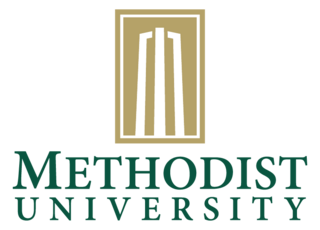
Carnegie Mellon University (CMU) is a private research university in Pittsburgh, Pennsylvania, United States. The institution was established in 1900 by Andrew Carnegie as the Carnegie Technical Schools. In 1912, it became the Carnegie Institute of Technology and began granting four-year degrees. In 1967, it became Carnegie Mellon University through its merger with the Mellon Institute of Industrial Research, founded in 1913 by Andrew Mellon and Richard B. Mellon and formerly a part of the University of Pittsburgh.

The Carnegie Mellon University College of Engineering is the academic unit that manages engineering research and education at Carnegie Mellon University. The College can trace its origins from Andrew Carnegie's founding of the Carnegie Technical Schools. Today, The College of Engineering has seven departments of study.

The Heinz College of Information Systems and Public Policy, also known as Heinz College, is the public policy and information college of Carnegie Mellon University in Pittsburgh, Pennsylvania. It consists of the School of Information Systems and Management and the School of Public Policy and Management. The college is named after CMU's former instructor and the later U.S. Senator John Heinz from Pennsylvania.

John Patrick "Pat" Crecine was an American educator and economist who served as President of Georgia Tech, Dean at Carnegie Mellon University, business executive, and professor. After receiving his early education at public schools in Lansing, Michigan, he earned a bachelor's degree in industrial management, and master's and doctoral degrees in industrial administration from the Graduate School of Industrial Administration at Carnegie Mellon University. He also spent a year at the Stanford University School of Business.

The College of Fine Arts (CFA) at Carnegie Mellon University in Pittsburgh, in the U.S. state of Pennsylvania oversees the Schools of Architecture, Art, Design, Drama, and Music along with its associated centers, studios, and galleries.

The University of Madeira is a Portuguese public university, created in 1988 in Funchal, Madeira. The university offers first, second cycle and Doctorate academic degrees in a wide range of fields, in accordance with the Bologna process. It is now under the CMU/Portugal agreement with Carnegie Mellon University, having master programme in Computer Engineering, Human Computer Interaction and Entertainment Technology. Students admitted will be eligible for scholarships and have internship opportunity during the summer break. In addition, Madeira Interactive Technologies Institute, founded in January 2010, is devoted to building international partnership with other educational institutes and industry.

The College of Arts, Sciences, and Engineering is one of the primary units of the University of Rochester, encompassing the majority of the undergraduate and graduate enrollment. The College is divided in the units of Arts and Sciences and the Hajim School of Engineering and Applied Sciences. The College is located on the River Campus of the University of Rochester, though some departments maintain facilities on other campuses. The College was established in 1955 upon the merger of the separate colleges for men and women at the university.
The Department of Social and Decision Sciences (SDS) is an interdisciplinary academic department within the Dietrich College of Humanities and Social Sciences at Carnegie Mellon University. The Department of Social and Decision Sciences is headquartered in Porter Hall in Pittsburgh, Pennsylvania and is led by Department Head Gretchen Chapman. SDS is known for research and education programs in decision-making in public policy, economics, management, and the behavioral social sciences.

Methodist University is a private university that is affiliated with the North Carolina Annual Conference of the United Methodist Church and located in Fayetteville, North Carolina. It is accredited by the Southern Association of Colleges and Schools Commission on Colleges.

The Carnegie Mellon School of Art at Carnegie Mellon University in Pittsburgh, Pennsylvania is a degree-granting institution and a division of the Carnegie Mellon College of Fine Arts. The School of Art was preceded by the School of Applied Design, founded in 1906. In 1967, the School of Art separated from the School of Design and became devoted to visual fine arts.

The School of Design at Carnegie Mellon University is a degree-granting institution within a private university in Pittsburgh, Pennsylvania, United States. The School of Design is one of five schools within the Carnegie Mellon College of Fine Arts offering both under and post graduate education. The School is accredited by Middle States Association of Colleges and Schools and awards BDES, MA, MDES, MPS, MII-PS, DDES, and PhD degrees. The School of Design has 21 full-time and 10 adjunct faculty.

The Human–Computer Interaction Institute (HCII) is a department within the School of Computer Science at Carnegie Mellon University (CMU) in Pittsburgh, Pennsylvania. It is considered one of the leading centers of human–computer interaction research, and was named one of the top ten most innovative schools in information technology by Computer World in 2008. For the past three decades, the institute has been the predominant publishing force at leading HCI venues, most notably ACM CHI, where it regularly contributes more than 10% of the papers. Research at the institute aims to understand and create technology that harmonizes with and improves human capabilities by integrating aspects of computer science, design, social science, and learning science.
Erwin Ray Steinberg was an American scholar and professor.

David Klahr is an American psychologist whose research ranges across the fields of cognitive development, psychology of science, and educational psychology and has been a professor at Carnegie Mellon University since 1969. He is the Walter van Dyke Bingham Professor of Cognitive Development and Education Sciences at Carnegie Mellon University and a member of the National Academy of Education, a Fellow of the American Psychological Association, a Charter Fellow of the Association for Psychological Science, on the Governing Board of the Cognitive Development Society, a member of the Society for Research in Child Development, and the Cognitive Science Society. He was an associate editor of Developmental Psychology and has served on the editorial boards of several cognitive science journals, as well as on the National Science Foundation's subcommittee on Memory and Cognitive Processes, and the National Institutes of Health's Human Development and Aging Study Section.
The Tepper School of Business is the business school of Carnegie Mellon University. It is located in the university's 140-acre (0.57 km2) campus in Pittsburgh, Pennsylvania.
William S. Dietrich II was a successful industrialist who took over and expanded Dietrich Industries, a steel framing manufacturer which he eventually sold to Worthington Industries. Late in life, he made two of the largest charitable contributions in higher education history, to the University of Pittsburgh and Carnegie Mellon University.
Vincent Aleven is a professor of human-computer interaction and director of the undergraduate program at Carnegie Mellon University's Human–Computer Interaction Institute.
Angel G. Jordan was a Spanish-born American electronics and computer engineer known as the founder of the Software Engineering Institute (SEI) and co-founder of the Robotics Institute at Carnegie Mellon University (CMU) and served on its faculty for 55 years, since 2003 as Emeritus. He was instrumental in the formation of the School of Computer Science (SCS) at Carnegie Mellon. He has made contributions to technology transfer and institutional development. He served as Dean of Carnegie Mellon College of Engineering and later as the provost of Carnegie Mellon University.
Linda C. Babcock is an American academic. She is the James M. Walton Professor of Economics and former dean at Carnegie Mellon University's Heinz College, and is the former head of the Social and Decision Sciences department. She is also the founder and faculty director of the Program for Research and Outreach on Gender Equity in Society (PROGRESS).
J. David Creswell is an American social psychologist, professor, author, and entrepreneur. He is most known for his work on mindfulness, meditation, equanimity, and stress resilience. He is currently a professor of psychology at Carnegie Mellon University, where he runs the Health and Human Performance Lab. He is also the co-founder and head of science of Equa Health, a personal mindfulness training app.














